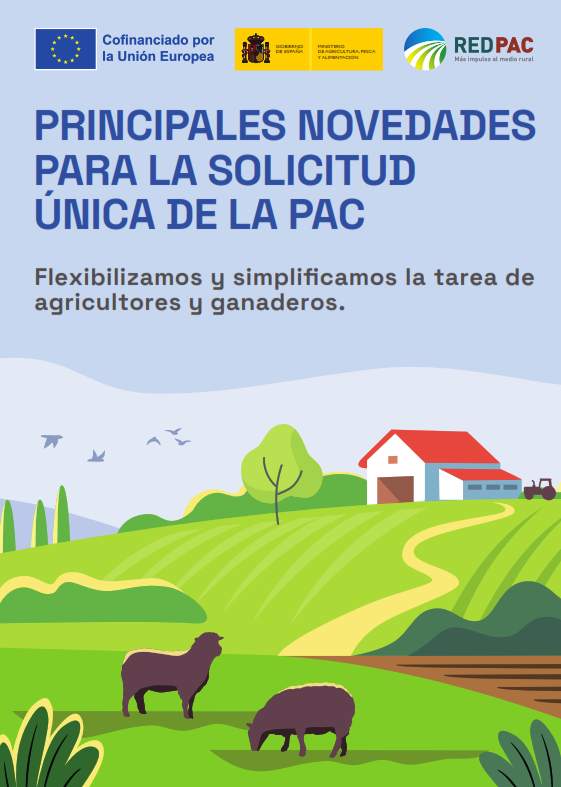Related documentation
-
The Good Agricultural and Environmental Practices (GAPs) that farmers must comply with in order to fully receive direct CAP aid, area payments, livestock charges, and certain POSEI program aid have been simplified and made more flexible. Thus, starting with the 2025 Single Application (and in some cases as early as the 2024 Single Application), a series of changes are included in the following GAPs, which are classified according to the environmental objective to be achieved.
-
This brochure explains that the CAP Network is the meeting point that connects all individuals and entities related to the rural environment and agricultural activity, with the aim of disseminating and ensuring compliance with the PEPAC objectives and facilitating their implementation throughout the country. Organizations, administrations, advisors, researchers, and other innovation agents will continue to collaborate to enhance knowledge transfer and cooperation.
-
This video explains that the CAP Network, a platform of the Ministry of Agriculture, Fisheries and Food, is part of the system for monitoring compliance with the measures of the CAP Strategic Plan (PEPAC) 2023-2027. The new PEPAC is geared toward achieving concrete results related to innovation, knowledge, and the digitalization of rural areas, and includes numerous new features in terms of support, objectives, and measures.
-
This video explains that the PAC Network is the meeting point that connects all individuals and entities related to the rural environment and agricultural activity, with the aim of disseminating and ensuring compliance with the PEPAC objectives and facilitating their implementation throughout the country. Organizations, administrations, advisors, researchers, and other innovation agents will continue to collaborate to enhance knowledge transfer and cooperation.
-
The project began in 2014, supporting extensive and transhumant livestock systems with profitable products. The rural world must seek out these niches and this natural capital to make the rural environment more profitable.
-
Fifteen years ago, they moved from Barcelona to Josa de Cadí. The artisanal cheese factory was trying to revive the craft. They came from an urban environment and had to learn two trades: shepherding and cheesemaking. Their herds are of Alpine breed, and their cheeses are made daily from raw milk, soft-paste cheeses, and moldy rinds.
-
After living in Barcelona for several years, they wanted to make a change of life and decided to move to the Canary Islands and settle there. They started the organic creperie project, RISCOCAÍDO, which aims to unite their love of nature with food, health, and the environment.
-
This compilation includes projects considered best practices due to their replicability and their effective use of funds received through various measures under the regional Rural Development Programs (RDPs). It includes projects from several autonomous communities and various measures.
-
Publication compiling 22 projects and actions considered best practices within the framework of the various measures comprising the 2014-2020 National Rural Development Program.










